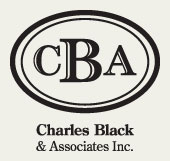WORKSHOP
Fundamentals of Industrial Electricity I & II
Fundamentals of Industrial Electricity I
Course Description |
This 24 hour workshop is designed to provide an entry level participant with the fundamentals of industrial electricity. The workshop begins with electrical safety including electrical hazards and arc flash hazards that help meet OSHA training requirements. It follows with a practical introduction to electrical fundamentals as applied to industrial electricity. Participants will also learn the proper techniques for using electrical test equipment which is accomplished through hands-on activities. Finally, participants learn the fundamentals of reading schematics, wiring diagrams, and ladder diagrams using company specific and vendor prints. |
Topical Outline |
Electrical Safety
Fundamentals of Electricity
Electrical Test Equipment
Electrical Drawing and Symbols
|
Prerequisites |
Company must provide basic company specific or vendor schematics for training. Participants are also asked to bring their own Multimeters to use in accompanying exercises. |
Course Length |
24 hours |
Fundamentals of Industrial Electricity II
Course Description |
Part II is a 24 hour workshop that builds on the principles taught in Fundamentals of Industrial Electricity Part I. This workshop begins with a review of Safety and Ohms Law. Next, we cover power distribution systems including transformers, switchgear, NEC standards, and the basics of industrial wiring. Participants then learn the principles of AC motors and their controls. Industrial control devices are then covered including switches, output devices, electronic devices, meters, and transducers. Finally, the participants will analyze their schematics to determine basic troubleshooting strategies. |
Topical Outline |
Power Distribution
AC Motors and Motor Starter Circuits
Industrial Controls
Advanced Electrical Schematics
|
Prerequisites |
Company must provide detailed company specific or vendor schematics for training. Participants are also asked to bring their own Multimeters to use in accompanying exercises. |
Course Length |
24 hours |
